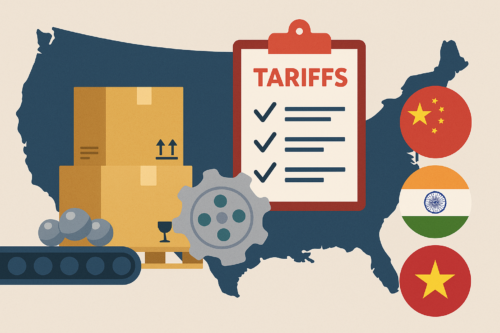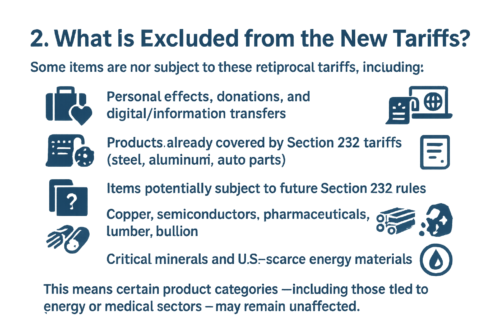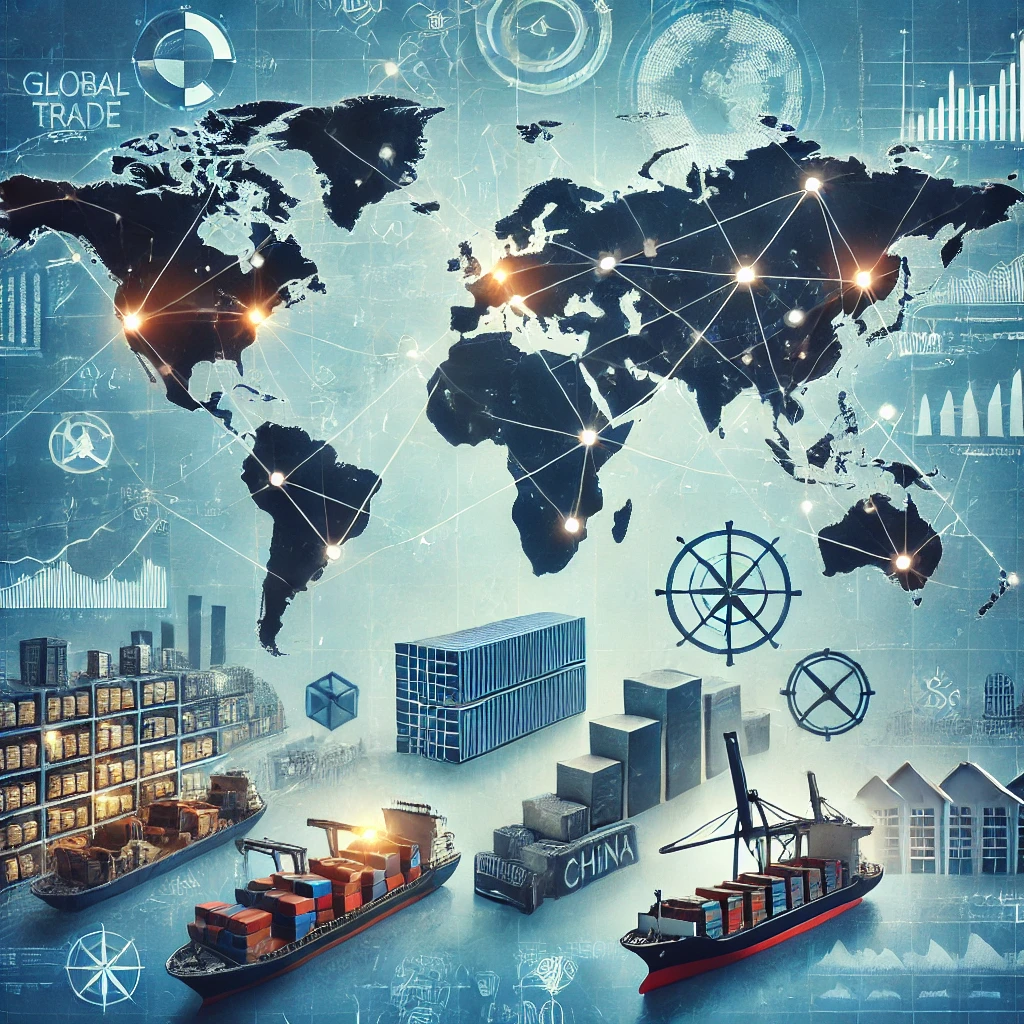How April 2025 Tariff Changes Could Impact Ball and Industrial Imports
If your business relies on imported components like precision balls or automotive-grade parts, the April 2025 tariff announcements are important to review. New regulations are set to impact nearly every U.S. importer — especially those sourcing from countries like China, India, and Vietnam.
At STR Industries, we help clients plan around these shifts with flexible sourcing strategies and compliance insight.
1. A 10% Base Tariff Goes into Effect April 5
Under the International Emergency Economic Powers Act (IEEPA), the U.S. will impose a 10% tariff on all imports from all countries beginning April 5, 2025.

By April 9, these will be replaced by country-specific reciprocal tariffs targeting trade deficits. These rates vary significantly:
- China: 34%
- Vietnam: 46%
- Taiwan: 32%
- India: 26%
- European Union: 20%
For U.S. buyers importing precision steel balls, components, or materials from these countries, costs could spike without a proactive adjustment.
2. What Is Excluded from the New Tariffs?
Some items are not subject to these reciprocal tariffs, including:
- Personal effects, donations, and digital/information transfers
- Products already covered by Section 232 tariffs (steel, aluminum, auto parts)
- Items potentially subject to future Section 232 rules
- Copper, semiconductors, pharmaceuticals, lumber, bullion
- Critical minerals and U.S.-scarce energy materials
This means certain product categories — including those tied to energy or medical sectors — may remain unaffected.

3. Section 232 Auto & Auto Parts Tariffs
If you manufacture for the automotive or electric vehicle (EV) sector, two new 25% tariffs may directly affect your components:
- April 3, 2025: Tariff on sedans, SUVs, crossovers, vans, and light trucks
- May 3, 2025: Tariff on engines, transmissions, powertrains, and electrical parts
Parts that qualify under the USMCA (United States-Mexico-Canada Agreement) will continue to enter tariff-free — for now.
4. De Minimis Elimination for China & Hong Kong
Currently, U.S. importers can bring in shipments under $800 without duty via the De Minimis rule. But starting May 2, 2025, this exemption will be eliminated for goods from China and Hong Kong.
This may affect smaller orders of stainless steel, bearing balls, or sample/test batches — especially if you’re used to low-volume importing from Asia.
5. What This Means for STR Customers
Whether you source chrome steel, stainless steel, or ceramic precision balls, these tariff changes can increase cost and disrupt delivery timelines.
Here’s how STR Industries helps you stay ahead:
- ✅ Identify alternate sourcing locations to minimize tariff exposure
- ✅ Ensure proper documentation and classification for ISO/DIN compliance
- ✅ Strategize around De Minimis thresholds for small-batch procurement
- ✅ Keep you informed as additional policy updates roll out
We’re already working with clients to shift supply routes and protect margins in light of the coming tariff rounds.
Final Thoughts
As supply chain pressure increases and regulatory changes evolve, U.S. manufacturers can’t afford to “wait and see.” The April 2025 tariff schedule is a strong reminder to evaluate your sourcing mix, compliance documentation, and pricing strategies.
At STR Industries, we combine decades of import experience with a global sourcing network to help you adapt quickly.
📞 Have Questions About Your Imports?
Let us help you minimize risk and identify the best sourcing options for your ball bearings and industrial components.
👉 Contact STR Industries to speak with a sourcing and compliance specialist.

